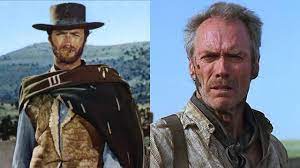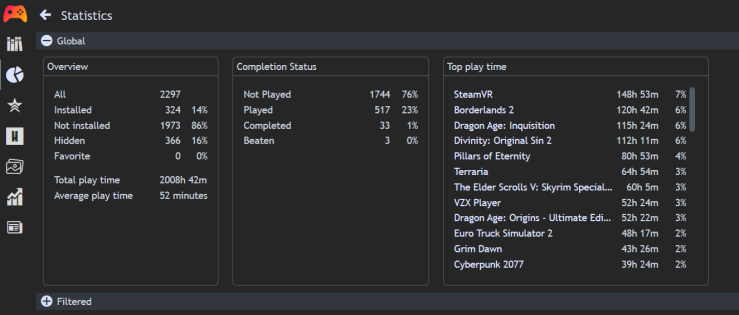Every year (when I remember) I do an end-of-year summary to outline what has been going on in my life. I’ve been doing this for a few years now, and it’s a great way to look back on the year and see has happened.
The Bad:
- The main bad news of the year is that, contrary to expectations, my Hodgkins Lymphoma cancer was detected again around April after the initial chemotherapy. So it had come back.
- The rest of the year has mostly revolved around subsequent treatments to try and reach a long term remission, e.g. cure. I’m not there yet, but there are a lot of treatments still available, and I have hope that my current immunotherapy treatment might be the one that works.
- It wasn’t just me that was affected, my wife suffered quite a bit on hearing the news, and has only just really taken it all in and come to terms with it.
- I’m pretty sure that I will be cured eventually, at least for a good 10-20 years or so, it just is a pain having to take time off work and go through sometimes intensive treatment sessions.
- The economy has not had the greatest of years either, and the cost of living crisis affecting the UK has had an effect on us, and my parents who are the main financial support we have while I am unable to work.
The Good:
- I have found a renewed interest in my career, in software development, and I have spent a lot of my spare time, and part of my downtime for treatment, learning new technical things and just generally finding the enjoyment in technology that I thought I’d permanently lost for so many years.
- The career opportunities around working from home have been very good considering my illness. There is still, despite a downturn, more than enough work around, and a lot of it is 100% work from home work. I’m no longer worried about being unemployed for any great length of time, presuming I am healthy enough to work from home.
- I’ve been developing my writing and social media skills, which have been a welcome distraction from the bad stuff going on. I’ve always enjoyed writing, but I would say my writing has particularly improved over the past year.
Work on the house
We have spent a lot of time, effort and money on working on the house this year. Conny has put in a great deal of amazing work, in particular.
The Back Garden
This has been transformed, from a jungle into a really nice space to relax. It is very relaxing to sit under the gazebo and get my 15-30 minutes of sun per day when I am working from home. There are always birds throughout the year around the garden, and the sound of birds tweeting away is great to listen to when you’re stressed.
The Music Studio / Games room
We have done a lot to the Music Studio, including:
- Putting in a huge 5×5 IKEA KALLAX to store all the records and books.
- Replacing the old 1970s desk I had from when I was 18, with a more comfortable large IKEA desk.
- Lots of updates to the DJ setup, including using my Vestax VCM-600 as a Resolume controller, and putting up a DJ screen around the DJ booth. Also, I got a new top-down high quality camera for the decks, which is very useful.
- We have a mini table in the studio which is big enough to share a meal together and sit and have a drink together, as we did at Xmas and new years. We are going to try and eat together at this table every Sunday, in the German tradition.
The Study
- This has been completely changed, with an IKEA motorized standing desk and tons of new stuff. I have built the ideal setup for me for working from home. We also have sorted out bookshelves for books and CDs, and organized them all. Conny also has a little desk and area for her gaming PC, so we can game together / hang out together.
- We have a standing electric clothes dryer, which has been very useful as it can dry an entire washing machines load in 4 hours.
- To keep an eye on the air quality because of the new dryer, we have an air filter in the study, and an air quality sensor.
The Home Network and ThinkStation Server
This has been completely redone.
- Currently we have not one but TWO gigabit internet connections, and a static IP address.
- I have a small fibre optic 10Gb/sec network between the ThinkStation server and my music studio computer. I hope to also add a 2.5Gb/sec link to my DJing laptop soon, so I can shunt files around superfast.
- The ThinkStation server now runs Ubuntu instead of Windows, and serves up my Ebook collection, my music, TV and movies collection, and stores my console games too, which are accessed by my studio PC. It has about 10 TB of space which I am backing up fully to my Google Drive with Borg backup and rclone.
- My Ubuntu ThinkStation and Linux development environment has seen a LOT of work. I have everything running very much to my liking.
- We have mounted all network equipment possible on the walls, and used cable ties a lot to minimise mess.
The Kitchen
We have a small counter-top dishwasher now, which works very well, and is very helpful in reducing the amount of housework necessary.
The Ugly:
- No ugly things have really happened, touch wood!
—
I hope everyone has a good Xmas involving a lot of mince pies, liquid refreshments, and good times.










